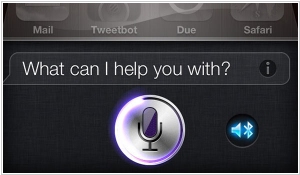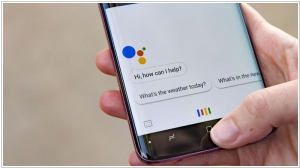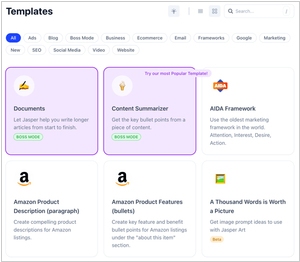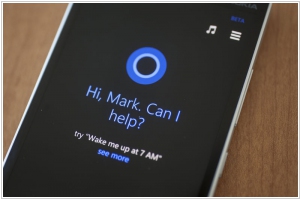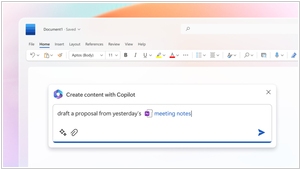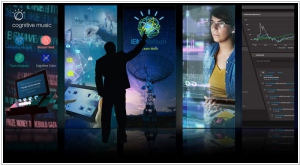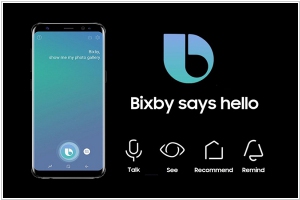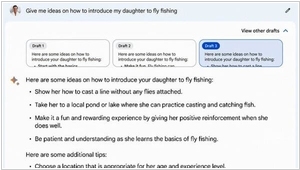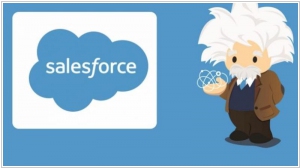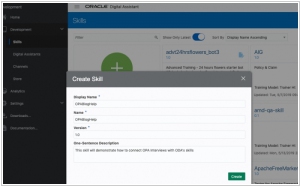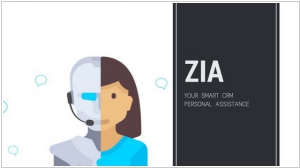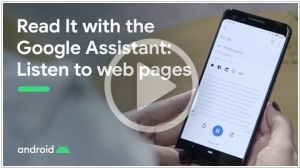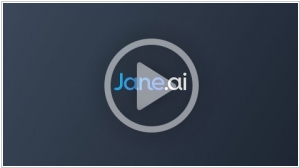Top 10 AI Assistants for business
April 08, 2024 | Editor: Adam Levine
22
AI Assistants, powered by machine learning and natural language processing technologies, handle routine tasks such as text generation, data analysis, customer inquiries, appointment scheduling, and inventory management, liberating human resources to focus on higher-value strategic initiatives. AI Assistants continually adapt and learn from interactions, refining their capabilities and personalizing their support, thereby fostering stronger customer engagement and satisfaction.
1
ChatGPT is an AI-powered language model developed by OpenAI, capable of generating human-like text based on context and past conversations.
2
Talk to Siri as you would to a friend and it can help you get things done — like sending messages, placing calls, or making dinner reservations. You can ask Siri to show you the Orion constellation or to flip a coin. Siri works hands-free, so you can ask it to show you the best route home and what your ETA is while driving. And it’s connected to the world, working with Wikipedia, Yelp, Rotten Tomatoes, Shazam, and other online services to get you even more answers. The more you use Siri, the more you’ll realize how great it is. And just how much it can do for you.
3
Virtual assistant integrated in conversational user interface products: Google Allo and Google Home. You can ask a question for an answer, and follow up with multiple questions, with Google picking the conversation out and returning the right answer.
4
Jasper is an artificial intelligence platform that helps teams create high-quality content faster. Stop chasing word-count and start pursuing ideas.
5
Cortana is your personal assistant on your Windows computer. She's there to help make things easier for you and keep you up to date on the things that matter to you. Whether it’s to keep you looped in with your world or help you manage your everyday life, Cortana is there for you.
6
Alexa lets you be more productive throughout your day and stay focused on important tasks. Alexa can help you manage your schedule, keep track of your to-do list, and set reminders. Alexa can automatically dial into your conference calls and make phone calls for you. Alexa can help quickly find information for you, like the latest sales data, or the inventory levels in your warehouse.
7
Microsoft 365 Copilot - your copilot for work. It combines the power of large language models (LLMs) with your data in the Microsoft Graph and the Microsoft 365 apps to turn your words into the most powerful productivity tool on the planet.
8
Build an AI assistant for a variety of channels, including mobile devices, messaging platforms, and even robots.
9
Bixby helps you unlock the full potential of your Samsung device. By learning what you like and working with your favorite apps, Bixby makes it easy for you to get more done.
10
Bard is your creative and helpful collaborator, here to supercharge your imagination, boost your productivity, and bring your ideas to life.
11
Einstein AI is your smart CRM assistant. Make decisions faster, make employees more productive, and make customers happier using AI-powered predictions and recommendations.
13
Oracle Digital Assistant provides the platform and tools to easily build AI-powered assistants that connect to your backend applications. A digital assistant uses artificial intelligence for natural language processing and understanding, to automate engagements with conversational interfaces that respond instantly, improve user satisfaction, and increase business efficiencies.
14
AI-powered assistant for your business. Whether you're collecting customer data, writing a document, or just looking for some sales numbers, Zia works hard to make your job easy.
Latest news about AI Assistants for business
2024. Google rolls out Gemini in Android Studio for coding assistance
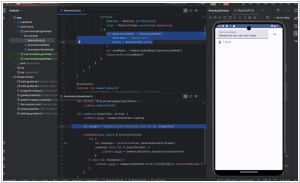
Google is expanding the integration of Gemini across its products, with the latest upgrade being announced for Android Studio's bot, now called Gemini Pro. This advanced bot, residing within the Integrated Development Environment (IDE), allows developers to inquire about coding-related queries. Google promises enhanced answer quality in various aspects including code completions, debugging, resource discovery, and documentation writing. To uphold privacy standards, users are required to log in and explicitly enable Gemini usage, while the bot's responses heavily rely on conversation history and provided context. Additionally, Google offers easy access to the Gemini API starter template through Android Studio, facilitating the integration of generative AI-powered features into applications.
2024. Microsoft acquires conversational AI startup Inflection
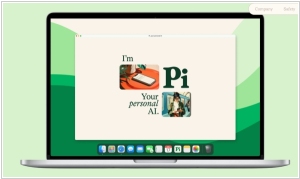
Microsoft has acquired Inflection, a conversational AI startup that had previously secured $1.3 billion in funding to develop what it dubbed "more personal AI," with Microsoft as the lead investor. Inflection's vision centered on a conversational AI capable of engaging across multiple platforms in a natural manner, retaining memory of users and past interactions for enhanced personalization and utility. Despite the promising concept, their AI, Pi, fell short of expectations. Despite significant investment, Inflection struggled to keep pace with the rapid advancements in capabilities and services offered by competitors such as OpenAI (also backed by Microsoft), Google's Gemini, which benefited from its dominance in search, and Anthropic, focusing on practical applications where AI excels.
2023. Google Bard can now watch YouTube videos for you
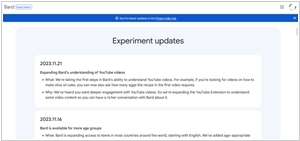
With the latest expansion, Google Bard users can delve deeper into the intricacies of their preferred YouTube videos, thanks to the AI chatbot's newfound ability to comprehend video content and respond to user inquiries. This enhancement empowers users to not only request specific videos but also pose more intricate follow-up questions about the content, seeking comprehensive summaries and specific details even before initiating playback. However, some individuals in online communities express concerns that this update might pose a threat to the prospects of online video educators. Additionally, it amplifies existing worries regarding privacy and ownership issues associated with generative AI. The update hints at a potential future where Bard, under Google's ownership, could undertake a wide array of tasks, including content consumption, sparking discussions about the extent of its capabilities.
2023. Microsoft brings Copilot to Windows 10
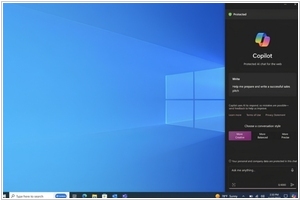
With the upcoming release of Windows 10 version 22H2, accessible to participants in Microsoft's Windows Insider program, Windows 10 is set to acquire Copilot capabilities akin to those found in Windows 11. Users will have the ability to pose questions and seek suggestions from Copilot across various tasks and subjects, engaging with the chatbot through either typed or spoken interactions after activating the Copilot icon on the taskbar. However, the experience on Windows 10 is somewhat limited compared to Copilot on Windows 11, as it currently cannot execute actions such as customizing preferences, adjusting settings, or opening applications—though Microsoft suggests in a blog post that these functionalities may be introduced in future updates.
2023. Microsoft rebrands Bing Chat to Copilot
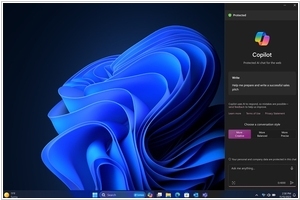
Earlier this year, Microsoft initiated a significant AI initiative within its Bing search engine, seamlessly incorporating a ChatGPT-like interface into search results. Now, in less than a year, the company is rebranding from Bing Chat to Microsoft Copilot, the new moniker for the chat interface accessible through Bing, Microsoft Edge, and Windows 11. Initially, Microsoft emphasized competition with Google in the realm of AI, but it appears that the focus has shifted towards ChatGPT. This rebranding coincides with OpenAI's revelation that 100 million users engage with ChatGPT weekly. Despite a substantial partnership between Microsoft and OpenAI, valued in billions, both entities are vying for the same clientele in the AI assistant market, with Microsoft positioning Copilot as the preferred choice for consumers and businesses.
2023. Google Assistant is getting AI capabilities of Bard
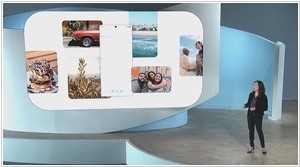
Google Assistant is now paired with Bard, that provides it generative AI technologies. The enhanced assistant can now handle a wider array of questions and tasks, delving into your Google apps such as Gmail and Google Drive to provide tailored responses to your queries, provided you opt-in for this service. For instance, you could inquire about your important unread emails from the past week, and the digital assistant can retrieve the relevant emails for you. Besides managing your inbox, this expanded functionality can also be utilized for personal tasks like planning trips, creating grocery lists, or composing social media captions. Google intends to observe how users interact with Assistant with Bard through this experimental launch before making the feature widely available on Android and iOS platforms.
2023. Microsoft Bing to gain more personalized answers, support for DALLE-E 3 and watermarked AI images
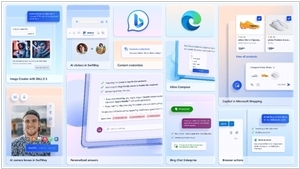
Microsoft's Bing is set to undergo significant AI enhancements, incorporating support for OpenAI's latest DALLE-E 3 model, delivering more personalized responses in both search and chat functionalities. Additionally, the platform will feature tools to watermark images as AI-generated. These updates were unveiled at an event in New York, where Microsoft also introduced new Surface devices equipped with built-in AI experiences. The Windows 11 upgrade, scheduled for September 26, will bring numerous AI improvements, including the integration of the AI helper Copilot, expanding its reach to Bing, Edge, and Microsoft 365 Copilot in the fall. For enterprise customers, both Microsoft 365 Copilot and a new workplace AI assistant, Microsoft 365 Chat, will be available starting November 1, 2023. Moreover, AI experiences are slated to extend to various Windows apps such as Paint, Photos, Clipchamp, and more.
2023. Amazon brings generative AI to Alexa
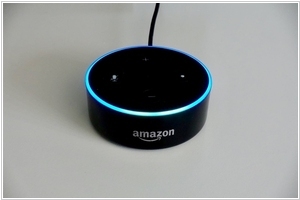
Amazon is introducing a generative AI model to enhance the functionality of its Echo devices. This novel model will enhance conversational interactions by considering factors such as body language, eye contact, and gestures. It will collaborate with APIs to facilitate new smart home features, deciphering descriptions like "spooky" lighting to provide meaningful responses. Moreover, it will imbue Alexa with a more prominent and opinionated personality. Amazon states that this advanced generative AI model can adapt its tone and responses to convey emotions such as agreement, excitement, laughter, and surprise, aligning with a person's natural pauses and hesitations to create a more fluid conversation.
2023. Salesforce introduces Einstein Copilot Studio to help customers customize their AI

Salesforce has unveiled Einstein Copilot Studio, an innovative tool empowering users to personalize the base Einstein GPT and Einstein Copilot features. Comprising three integral components – prompt builder, skills builder, and model builder – the tool offers enhanced customization capabilities. The prompt builder allows customers to tailor prompt templates within Einstein GPT, facilitating the incorporation of personalized prompts related to their products, brands, or specific business and market elements not present in the default offerings of Einstein GPT or Einstein Copilot. Furthermore, the skills builder empowers companies to integrate actions into prompts, expanding Copilot's capabilities beyond data access and query responses. This evolution grants organizations control over designating the workflows Copilot can access and execute, marking a notable advancement in customization and control.
2023. Google’s Duet AI becomes a meeting assistant, doc summarizer, and chat companion

Google is making its generative AI-powered assistant, Duet AI, widely accessible to organizations using Google Workspace. Previously tested with numerous companies, Duet AI is gaining new functionalities, serving as a meeting assistant, a Google Chat chatbot, a document summarizer, and enhancing personalization in Gmail's smart replies. Available through a no-cost trial, Duet AI enables users to generate presentations by utilizing text, charts, and images from relevant content in Google Drive and Gmail. For example, a financial analyst could streamline the process of summarizing Q3 performance by instructing Duet AI to analyze Google Sheets, P&L Docs, Monthly Business Review Slides, and pertinent emails from sales leads. Another use case sees Duet AI being added to Google Meet to help you look your best with studio look, studio lighting and studio sound.
2023. OpenAI launches a ChatGPT plan for enterprise customers
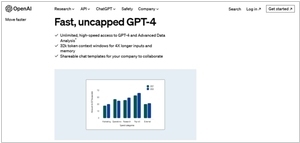
OpenAI has introduced ChatGPT Enterprise, a version of their AI-powered chatbot application geared towards businesses. Initially hinted at in a blog post earlier this year, ChatGPT Enterprise possesses the same functionalities as the standard ChatGPT, encompassing tasks such as composing emails, generating essays, and identifying issues within computer code. Priorly, Enhanced Data Analysis was exclusively accessible to individuals subscribed to ChatGPT Plus, the premium subscription tier of the regular ChatGPT web and mobile applications, which costs $20 per month. It's important to note that ChatGPT Plus will continue to be offered, as OpenAI considers ChatGPT Enterprise to be an addition that complements it. What sets it apart is the inclusion of heightened privacy and data analysis capabilities, classified as "enterprise-grade." Besides, ChatGPT Enterprise delivers improved performance and an array of customization options. This positions ChatGPT Enterprise at a comparable level to Microsoft's Bing Chat Enterprise, a recently launched chatbot service tailored for enterprise utility.
2023. Microsoft replaces Cortana with Copilot in Windows
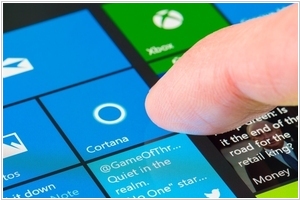
Microsoft is discontinuing its digital assistant Cortana in Windows, considering it as a stepping stone towards the future of AI. Instead of relying on Cortana, users will now turn to a smarter chatbot powered by GPT-4, thanks to Microsoft's partnership with OpenAI. In May, the company also announced integrating this new ChatGPT-based Bing experience directly into Windows 11. During this transitional period, Cortana will still exist in some capacity, but the standalone Windows app will no longer be supported. Nonetheless, users can access Cortana in Outlook mobile, Teams mobile, Microsoft Teams display, and Microsoft Teams rooms. To fill the void left by Cortana, Microsoft suggests exploring alternatives like Windows 11 voice access for controlling the PC through voice commands, the new AI-powered Bing, Microsoft 365 Copilot, and Windows Copilot, which provide centralized AI assistance for Windows users.
2023. Apple introduces bilingual Siri
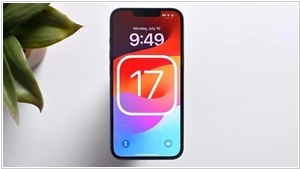
Apple has unveiled its initial set of public beta versions for iOS 17, iPadOS 17, and macOS Sonoma. These releases showcase several new features, including the ability to capture full-page screenshots, a bilingual Siri option, and enhanced SMS sorting for dual-SIM users. Notably, the company based in Cupertino has integrated support for bilingual queries into Siri, starting with select Indic languages. This advancement enables users to interact with Siri using a blend of English and Hindi, as well as English with Telugu, Punjabi, Kannada, or Marathi. While Apple's implementation arrives later than Google Assistant's multilingual support in 2018 and Amazon's introduction of similar capabilities in 2019, it holds significant value for users based in India who commonly converse in a mixture of languages throughout their daily interactions.
2022. Google is integrating Assistant and Calendar reminders with Tasks
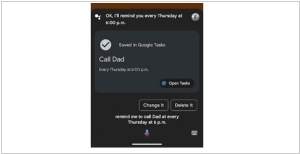
Currently, Google Tasks operates independently, separate from other Google services. While you can create tasks, subtasks, and set reminders in the Google Tasks iOS and Android apps, as well as through a side panel in Gmail or Google Drive on the web, these reminders don't seamlessly appear in your Assistant reminders. Furthermore, Google Calendar offers separate options for creating tasks and reminders, potentially causing confusion among users. To address this, Google is planning an update that will be rolled out in the coming months. Once implemented, when users set a reminder using Google Assistant, it will be visible in both the Tasks and Calendar lists. Additionally, users will receive a notification for task completion reminders at the designated time.
2020. Microsoft launches new Cortana features for business users
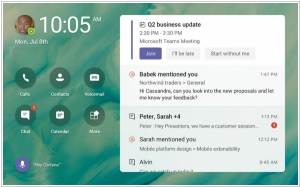
Cortana might have faced failure as a virtual assistant targeted at consumers, but Microsoft is maintaining its confidence in the platform for business purposes, now rebranded as a "personal productivity assistant" within Microsoft 365. Today, Microsoft unveiled several new Cortana services designed specifically for business users. Among these offerings is the widespread availability of Cortana for the new Microsoft Teams displays, which the company is launching in collaboration with various hardware vendors. These displays can be thought of as dedicated smart screens for Teams, similar to Google Assistant-enabled smart displays, but with a primary focus on meetings. In today's world, it is challenging to introduce a device like this without incorporating a voice assistant, and that's where Cortana comes into play.
2020. Microsoft to sunset Cortana on iOS and Android in pivot to productivity-focused assistant
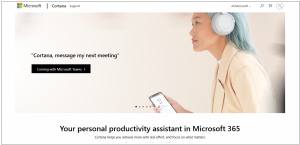
Microsoft has announced the discontinuation of Cortana on iOS, Android, and Surface Headphones, as the company shifts its focus towards business and enterprise technology rather than consumer offerings. Instead of competing with established leaders in the virtual assistant market, such as Apple, Google, and Amazon, Microsoft will concentrate on integrating Cortana's features into its suite of productivity products, Microsoft 365. This strategic decision reflects Microsoft's commitment to strengthening its presence in the enterprise technology sector, where it has experienced significant growth, while Cortana has faced challenges in keeping up with its competitors.
2020. Google Assistant can now use your voice to verify purchases
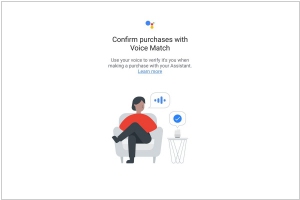
Making purchases using your voice may offer convenience, but it lacks adequate security measures. Google aims to address this concern by introducing an optional voice verification test when utilizing Assistant. This new security feature relies on Google Assistant's Voice Match and is gradually being rolled out through a limited pilot program. The program aims to assess the effectiveness of this feature on smart speakers and smart displays. Recently, the Voice Match training feature was updated to include specific phrases, enabling Assistant to accurately identify the speaker. With improved accuracy, Google now considers Voice Match as a reliable additional layer of security.
2020. Google Assistant on Android can now read entire web pages to you
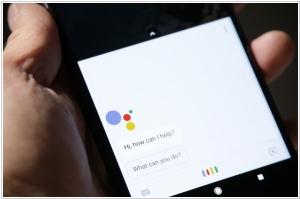
Google has begun the rollout of a new feature that allows Google Assistant to read entire web pages aloud. This functionality includes highlighting the text and automatically scrolling the page as it reads, making it easier for users to follow along with the story. Additionally, the read speed can be adjusted to suit individual preferences. If the web page is in a different language than the user's default setting, Google Assistant can automatically translate more than 40 languages into the preferred language. This feature is compatible with most modern Android phones, dating back to Android 5 (Lollipop).
2020. Microsoft’s Cortana drops consumer skills as it refocuses on business users
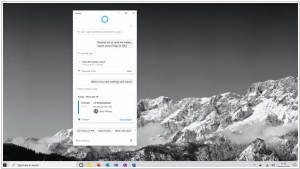
With the upcoming release of the next version of Windows 10 in the spring, Microsoft's Cortana digital assistant will undergo significant changes, particularly in terms of its consumer-focused capabilities related to music, connected homes, and third-party skills. As Microsoft stated last year, Cortana is now primarily positioned as a service for business users. The revamped Cortana will prioritize productivity and offer seamless integration with Microsoft's suite of Office tools. Consequently, consumer-oriented services are considered distractions, and Microsoft is ceding that market to competitors like Amazon and Google. Initially, these changes will only affect English-speaking users in the United States, while the rollout of most productivity features for users outside the U.S. will occur in the future.
2020. Clockwise launches an AI assistant for Google Calendar
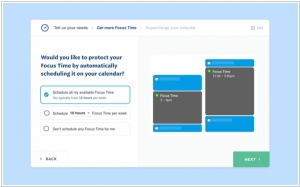
Clockwise is an innovative startup revolutionizing the way individual employee schedules are managed within a team. By prioritizing "focus time," Clockwise analyzes team schedules holistically and optimizes meeting arrangements. Their software seamlessly integrates with Google Calendar and has been empowering individuals to proactively reschedule meetings. In their latest update, Clockwise introduces the Clockwise Calendar Assistant, an intelligent feature that automates the heavy lifting by autonomously managing meeting schedules for teams. Notably, Clockwise has already garnered an impressive client roster, including Lyft, Asana, Strava, and Twitter. By initially offering their product for free, Clockwise has successfully expanded their user base and is continuously striving to serve a diverse range of customers.
2020. Google Assistant will be able to read texts
Google has introduced a new feature for Google Assistant on Android phones, transforming it into an advanced screen reader. By simply saying "Hey Google, read this," the Assistant will locate the main text on the webpage or article you are viewing and read it aloud to you. While screen readers have been available on phones before, Google claims to have enhanced the Assistant's capability to analyze sentences, resulting in more natural and human-like speech patterns. However, the most impressive aspect of this feature is that you can also request the Assistant to read the content in a different language, with support for up to 42 languages.
2019. Oracle launches digital assistant for the enterprise
Oracle has recently introduced Oracle Digital Assistant, an AI-powered assistant designed to assist employees in managing tasks related to enterprise resource planning (ERP), customer relationship management (CRM), and human resources within a conversational interface. This assistant is capable of addressing employee needs across popular chat applications such as Slack, Facebook Messenger, and WeChat, as well as voice-enabled platforms like Amazon's Alexa, Google Assistant, and Microsoft's Cortana. Similar to other automated bots, Oracle's enterprise assistant utilizes a combination of natural language understanding and natural language processing to interpret user intentions from their words. Instead of individuals having to interact with different bots for various tasks like procurement or expense filing, or relying on a suite of automated bots provided by the aforementioned apps, the Oracle Digital Assistant consolidates these experiences and recommends one of its 70 to 80 bots to efficiently accomplish the required tasks.
2019. Workplace AI assistant Capacity raised $13.2M
Capacity (former Jane.ai), the startup dedicated to addressing the problem of information fragmentation within enterprises, has successfully raised new funding to tackle the issue through its corporate data search platform. The company has recently concluded a Series B funding round, securing an impressive $13.2 million. Capacity empowers its customers to consolidate all their organizational data onto a unified platform, facilitating enhanced accessibility to company information for internal personnel. This streamlined process is facilitated by a chat interface and directory, enabling employees to effortlessly search for information. The platform offers a high degree of flexibility in customizing how queries are answered and determining the appropriate routing to an on-site representative when necessary.
2019. The Google Assistant can now finally manage your G Suite Calendar
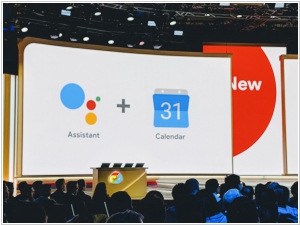
A new functionality has been introduced to Google Assistant, allowing users to effectively manage their work calendar within G Suite. By signing in with their G Suite accounts, individuals can inquire about their workday details using the Assistant. This integration extends to various Google Assistant platforms, including in-car devices and Assistant displays like the Google Home Hub. Currently, the primary focus of this feature revolves around retrieving information regarding calendar events, while event creation through the Assistant is not yet supported. However, Google mentions that users can leverage this functionality to, for instance, inquire about upcoming events and subsequently send emails to other attendees. Notably, Google has not previously positioned the Assistant explicitly as a productivity tool in the workplace, evident from names such as "Google Home" and "Home Hub." Nevertheless, there are instances where work and personal life intersect, and the underlying technology that allows you to control kitchen lights with voice commands can also extract valuable insights from spreadsheets.
2019. Zoho’s office suite got virtual assistant
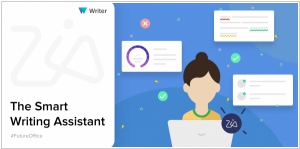
Zoho is set to release a significant update for its primary office suite products, including Zoho Writer, Sheet, Show, and Notebooks. These tools will be enriched with the integration of Zoho's AI assistant, Zia. With this enhancement, users will be able to ask questions related to data in their spreadsheets, and Zia will generate charts and pivot tables as per their queries. Moreover, Zoho has implemented Zia in its document editor and presentation tools, enhancing the grammar and spellchecking capabilities. Additionally, users will now receive a readability score and receive tips for improving their text. In Zoho Notebook, the company's latest note-taking application, Zia will assist users in creating various formats for their note cards based on the content, such as text, photo, audio, checklist, and sketch. This integration of Zia across Zoho's office suite aims to provide users with intelligent assistance and improved productivity in their day-to-day tasks.
2018. Amazon Alexa virtual assistant now available on Windows 10 PCs as a standalone app

Alexa made its debut on select Windows 10 laptops earlier this year, being integrated into a variety of newly released HP, Asus, Acer, and Lenovo notebooks. Now, Alexa is available for download on all compatible devices, expanding its accessibility. With its presence on Windows 10, Alexa aims to enhance work productivity, reflecting its growing utilization in office environments. This trajectory is reminiscent of the iPhone's rapid transition from individual users to becoming a staple tool in the workforce back in 2007. Furthermore, Amazon is actively establishing partnerships with corporate entities. Several companies, including Salesforce, SAP SuccessFactors, Concur, Ring Central, and ServiceNow, have plans to integrate their applications with Alexa for Business. This service was launched last year to assist companies in effectively managing a large number of Alexa devices in the workplace. The collaboration between Alexa and these corporate partners demonstrates the increasing role of voice assistants in optimizing workplace efficiency and streamlining business operations.
2018. Alexa for Business opens up to third-party device makers

In a prior year, Amazon introduced a new initiative known as Alexa for Business with the objective of integrating its voice assistant technology and Echo devices into corporate settings. Today, Amazon is taking a significant stride by expanding the platform to encompass device manufacturers who are developing their own solutions incorporating Alexa. This expansion allows device makers to create products that can be registered with Alexa for Business and managed as shared devices throughout the entire organization. Notable device management capabilities include configuring room assignments, specifying locations, monitoring device health, and controlling the allocation of public and private skills to the shared devices. According to Amazon, numerous businesses, including Express Trucking, Fender, and Propel Insurance, have already embraced the integration of Amazon Echo devices alongside their existing office equipment since the program's inception, with thousands of companies actively participating in this initiative.
2018. Alexa-Cortana integration is now available
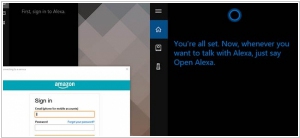
Microsoft has introduced a new feature that enables owners of Alexa devices to summon their own virtual assistant, Cortana, and vice versa. With this integration, customers can now access Microsoft's Cortana through their Echo devices and activate Amazon's Alexa on Windows 10 devices and Harman Kardon Invoke speakers. In the future, this functionality will also be available on mobile platforms such as iOS and Android. Once activated, this integration allows Cortana users to utilize Alexa to shop on Amazon, manage their Amazon orders, and utilize some of Alexa's third-party skills. Likewise, Alexa users will have access to Cortana's expertise in productivity features, including calendar management, daily overviews, and email management.
2018. Google Assistant gets custom routines and schedules
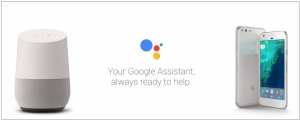
Google has recently introduced two new features for Google Assistant: custom routines and schedules, each providing unique ways to automate regular tasks. With custom routines, users can execute multiple commands with a single custom phrase. For instance, saying "Hey Google, I'm awake" can unsilence your phone, turn on the lights, and read the latest news. On the other hand, schedules allow the automation of a series of commands at specific times and on specific days, eliminating the need for manual activation. With schedules, tasks can be executed without the user having to utter a command. These additions enhance the convenience and efficiency of using Google Assistant for managing daily activities.
2018. Alexa gets smart meeting scheduling

Amazon's Alexa has introduced enhanced capabilities for business users, simplifying the management of personal schedules through voice commands. The new feature, called Smart Scheduling Assistant, enables users to easily reschedule appointments and arrange meetings based on the availability of participants. While Alexa already allowed the creation and cancellation of appointments, this addition provides users with greater control, significantly reducing time and effort. To initiate the scheduling of one-to-one meetings, users need to link a calendar to their Alexa account.


